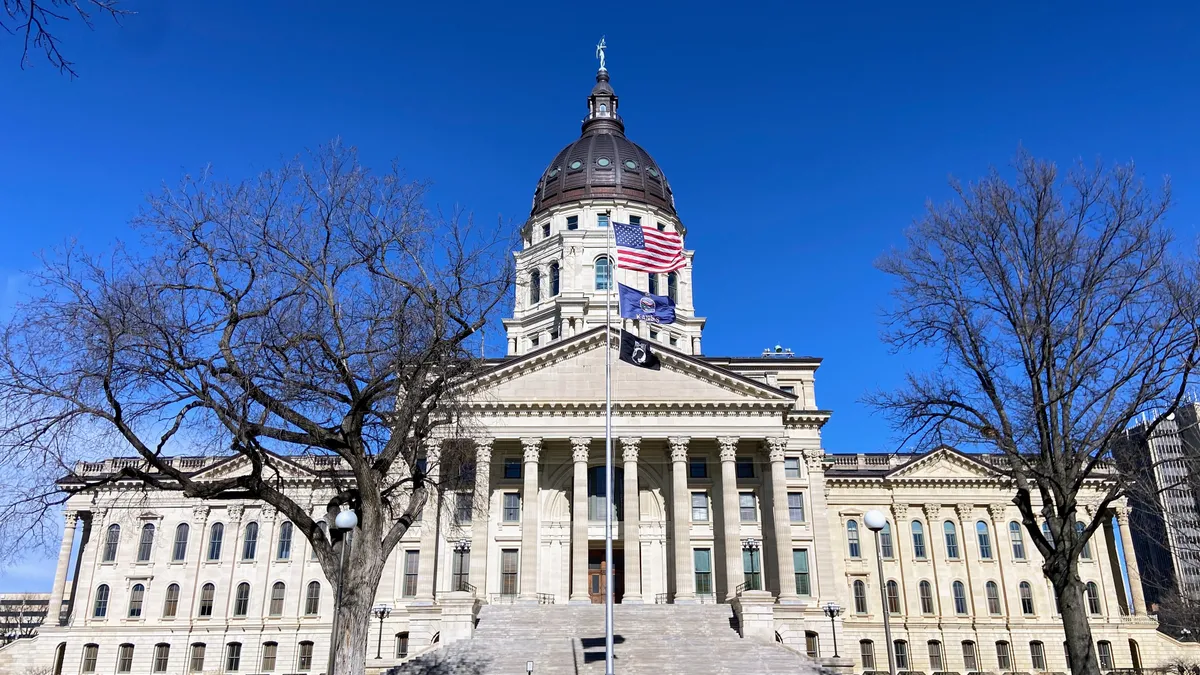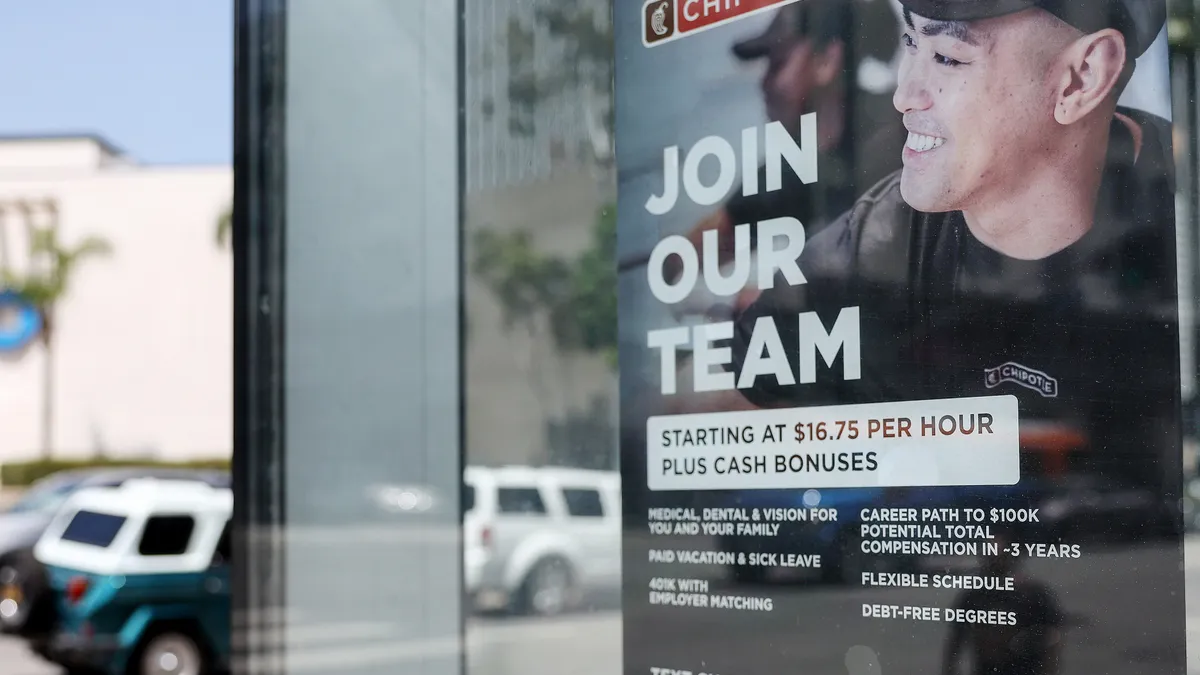Earned wage access providers are urging Kansas Gov. Laura Kelly to sign an earned wage access bill that was passed by the state’s legislature in early April.
The group, which includes the providers Payactiv, DailyPay and Wagestream, sent a letter to the Democratic governor Tuesday calling out the benefits of the legislation. The American Fintech Council, a trade group that works with those companies, underscored the campaign for passage in a Tuesday press release.
“We believe that the bill, as passed by the Kansas Legislature, properly balances responsible innovation with a pragmatic, consumer protected regulatory framework that fits the EWA industry,” the April 9 letter shared with Payments Dive said.
Last month, Wisconsin became the third state, following Nevada and Missouri, to pass a law calling for earned wage access providers to be licensed, but it kept EWA payments from being labeled as loans.
The governor’s office didn’t immediately respond to a request for comment.
Using EWA services lets employees tap their earned wages before their regular payday. The number of EWA providers has surged in recent years, with dozens entering the market. The companies employ an array of business models, with some working through employers and others offering services directly to employees. EWA providers also impose a variety of fees.
The legislation, which passed the legislature with bipartisan support, calls on the Office of the State Bank Commissioner to regulate EWA providers; establish a registration process for them; and produce annual reporting and other business records, according to a conference committee brief posted on the legislature’s website. The proposal also tasks the commissioner with examining the providers and enforcing the statute.
In addition, the bill lays out restrictions and prohibitions related to certain fees, including fees for failing to repay outstanding sums; restricts civil litigation to compel repayments; misleading information about voluntary gratuities related to payments; and reporting on user payments to a credit reporting agency.
“This new legislation establishes clear standards for acceptable EWA services regulated under its registration regime in a manner that reflects the nuances and optionality of the EWA industry while also protecting consumers from irresponsible actors,” the companies’ letter to the governor said.
Other EWA fintech players that signed the letter to the governor included EarnIn, Brigit, Cleo and ZayZoon, as well as the Cross River Bank.
Opposition to Kansas approach
Nonetheless, the National Consumer Law Center opposes the legislation because it doesn’t provide the same kind of consumer safeguards that apply to lending. The consumer protection organization has opposed similar legislation that passed in other states.
“The Kansas bill, like the Wisconsin, Missouri and Nevada ones, follows the pattern of states that have no interest rate caps and that allow high-cost payday loans authorizing a new form of high-cost lending,” NCLC’s associate director Lauren Saunders said by email. “It is no model for a state that has and cares about strong consumer protection laws.”
By contrast, California and Connecticut have taken a different tack, moving to subject EWA payments to lending laws that have provisions for policing interest rates and dictating transparency.
FlexWage is one industry player that argues in favor of such stricter regulations and it has won exemptions in California and Connecticut because it has a business model that differs from some rivals. It works through employers and never requires workers to repay their employer or FlexWage.
FlexWage takes a different tack
FlexWage’s vice president of compliance, Carl Morris, criticized the Kansas proposal, saying the bill’s lack of a cap on fees leaves leeway for the EWA services to act like payday lending. Employees often seek expedited services for which some EWA providers charge fees, and employees also often leave tips, he said. Those types of additional costs add up quickly when users are making ten $50 transfers every month, he explained.
“This doesn’t place any cap on fees, it simply says you cannot charge interest, late fees (and) unreasonable expedited fees but does not define unreasonable or place a cap on fees charged,” Morris said by email.
At the federal level, the Consumer Financial Protection Bureau said it supported the California Department of Financial Protection and Innovation’s approach to EWA and signaled it would issue a policy on EWA sometime soon, but so far it hasn’t.
However, two Republican U.S. representatives introduced legislation that was more friendly to the industry in February, winning support from industry trade groups for its treatment of EWA services differently than loans.
























